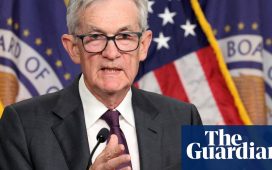
© Reuters. FILE PHOTO: Bank of England Governor Andrew Bailey attends the central bank’s Monetary Policy Report press conference at the Bank of England, in London, Britain, on February 1, 2024. JUSTIN TALLIS/Pool via REUTERS/File Photo
LONDON (Reuters) -British banks may choose to hold more reserve assets with Bank of England than previously thought, partly because of financial turmoil in the recent past, Bank of England Governor Andrew Bailey said on Monday.
Bailey’s speech focused on the stability of Britain’s banking system and the level of reserves that banks were likely to hold as the central bank reversed its quantitative easing asset purchases, and did not touch on the monetary policy outlook.
“I expect the future level of reserves to fall from where it is today – 467 billion pounds ($590 billion),” Bailey said in the text of a lecture to be delivered at Loughborough University in central England.
“I will go a bit further and say that my best guess today is that the demand for reserves by the banks will settle at a level higher than we would even in the recent past have expected. That may be for more than one reason, of which one may well be the lessons of last year,” he added.
The BoE’s overall stock of reserves – including the 467 billion pounds held by banks – stood at 790 billion pounds last week.
Last year saw the collapse of Silicon Valley Bank and UBS’s takeover of Credit Suisse (SIX:), brokered by Switzerland’s central bank, after the former bank suffered a loss of investor confidence.
Bailey said Britain’s banking system had by contrast remained solid, unlike during the 2007-08 financial crisis.
Continued low stock market valuations for British banks remained “a puzzle”, he added.
“The cost of risk – the return equity investors demand – does not seem to have fallen in line with what appears to be greater stability and lower risk per unit of equity. The cost of equity remains at pre-crisis levels even though it was clearly mispriced before the crisis,” he said.
($1 = 0.7914 pounds)








